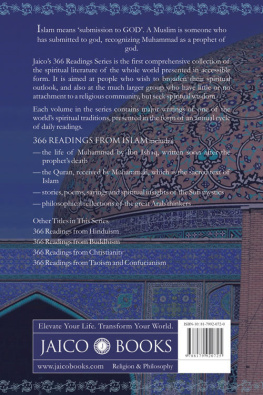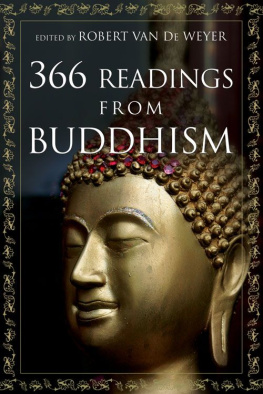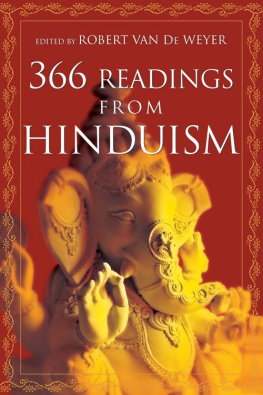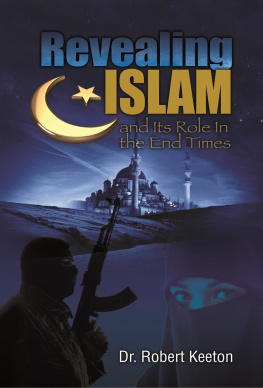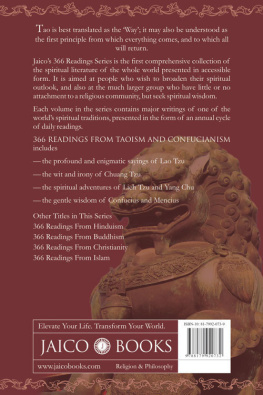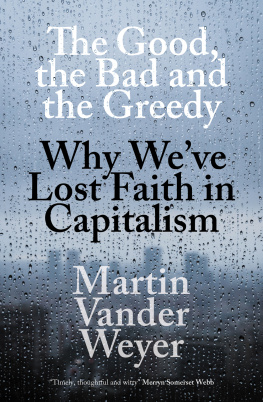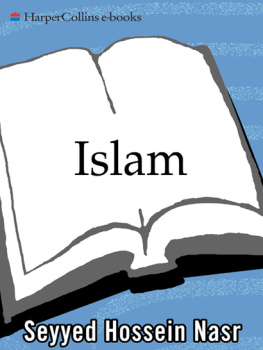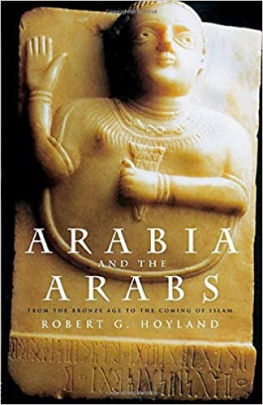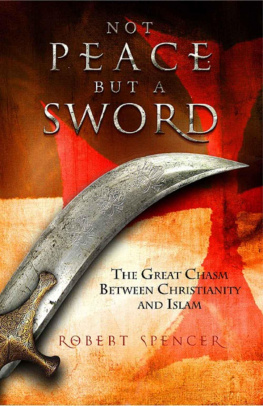READINGS
FROM
ISLAM
EDITED BY
ROBERT VAN DE WEYER
JAICO PUBLISHING HOUSE
Ahmedabad Bangalore Bhopal Bhubaneswar Chennai
Delhi Hyderabad Kolkata Lucknow Mumbai
Published by Jaico Publishing House
A-2 Jash Chambers, 7-A Sir Phirozshah Mehta Road
Fort, Mumbai - 400 001
www.jaicobooks.com
Arthur James Ltd.
Translation, Compilation and Editing
Robert Van de Weyer
Published in arrangement with
John Hunt Publishing Ltd.
46a West Street, New Alresford
Hants SO24 9AU, UK.
366 READINGS FROM ISLAM
ISBN 81-7992-072-0
First Jaico Impression: 2003
Tenth Jaico Impression: 2012
No part of this book may be reproduced or utilized in
any form or by any means, electronic or
mechanical including photocopying, recording or
by any information storage and retrieval system,
without permission in writing from the publishers.
CONTENTS
Series Introduction
Introduction
The Life of Muhammad
The Quran
Sufi Mysticism
Islamic Philosophy
Bibliography
Index of Writers
Also in the Global Spirit Library
366 readings from Buddhism
366 readings from Christianity
366 readings from Taoism and Confucianism
366 readings from Hinduism
SERIES INTRODUCTION
The Global Spirit Library is the first comprehensive collection of the spiritual literature of the world, presented in accessible form. It is aimed at people who belong to a particular religious community, and wish to broaden their spiritual outlook; and at the much larger group, perhaps the majority of people in the world today, who have little or no attachment to a religious community, but seek spiritual wisdom. Each book contains the major writings of one of the worlds spiritual traditions.
Much of the worlds spiritual literature was designed to be read or heard in small portions, allowing ample time for personal reflection. Following this custom, the books in The Global Spirit Library each consist of an annual cycle of daily readings. Two or more books may be read in parallel at different times of the day; or an entire book may be read straight through. Again following a time-honoured practice, many of the original texts have been condensed.
Spiritual traditions differ from one another in their theological formulations; and the history of humankind is blighted by rivalry between different religious communities. Yet theology is no more than human speculation about truths that are beyond the grasp of the human mind. The writings in these books amply demonstrate that, as men and women actually experience these truths within themselves and others, divisions and rivalries fade, and unity is found. May the third millennium be an era of spiritual unity across the globe.
INTRODUCTION
Islam means submission to God. A Muslim is someone who has submitted to God, recognizing Muhammad as a prophet of God.
In the year 610 CE, on a mountain outside the prosperous Arabian city of Mecca, a few simple words came into Muhammads mind; this was the first of many messages which Muhammad interpreted as divine revelations. He dictated the messages to scribes, and together the messages form the Quran. Muhammad saw himself as one of numerous messengers, sent by God to every nation in every age; and in his lifetime he sought to convey the Quran to the tribes of the Arabian peninsula. After his death his followers carried it beyond their tribal borders, forming a great empire, and ultimately a global spiritual community.
THE LIFE OF MUHAMMAD
About a century after the death of Muhammad, a historian called Ibn Ishaq collected oral and written accounts of Muhammad's life, and arranged them in chronological order. He appears to have done little editing, so frequently he gives several different accounts of the same incident. This allowed him to be remarkably honest, so he includes not only Muhammad's successes, but also his failures, describing moments of stress and despair.
Although many collections of Muhammad's sayings were made, Ibn Ishaq's great tome is the primary record of his life as a whole, and is the basis of all subsequent biographies.
The Quraysh tribe
Prior to the birth of Muhammad the people of the Quraysh had stopped worshipping God, and had taken to worshipping stones. This began when the population of Mecca grew so large, that the people began to settle in the countryside outside the city. Each man who left the city took a stone from the Grand Mosque, and placed it in the middle of his new settlement. People then walked around these stones, as they had originally walked around the Kaba. And soon they began to regard the stones themselves as divine, especially those which had strange and unusual shapes. Thus they prayed to the stones, as their forefathers had prayed to God.
As the generations passed, the Quraysh people almost entirely forgot the ancient faith of Abraham, which had been passed to them through Ishmael. Instead they put their faith in idols. Yet they retained some of the old practices, such as making pilgrimages to the Kaba at particular times of the year.
51, 52
The birth of Muhammad
When Amina, Muhammad's mother, became pregnant with him, a voice said to her: 'You are pregnant with the future leader of his people. After he is born, many people will envy him and wish him evil. But God will protect him. You should call him Muhammad.' And a light shone from her womb, by which she could see the great castles from which the world was ruled.
Abdullah, Muhammad's father, died while Amina was pregnant.
Muhammad was born in the year of the elephant. Amina sent a message to Muhammad's paternal grandfather to inform him of the birth, inviting him to come and look at the baby. When the grandfather arrived, Amina told him of the voice she had heard while she was pregnant. The grandfather took the baby to the Kaba, the shrine in the centre of Mecca, and gave thanks to God for this gift.
Then he carried the baby back to Amina, and set about finding a foster-mother to suckle him.
102, 103
Grandfather's prophecy
Muhammad lived with his mother and grandfather. God cared for him, so the child was strong and sturdy, like a thriving plant. He was admired by all who saw him. When Muhammad was aged six, his mother Amina died.
His grandfather's sons, Muhammad's uncles, made a bed which they placed in the shade of the Kaba. There the grandfather used to sit or lie during the day, and the uncles used to sit round him. None of the uncles ever sat on the bed itself, out of respect for the grandfather. On one occasion, while still a small boy, Muhammad came to the bed and jumped onto it. His uncles tried to drive him away. But his grandfather said: 'Leave the boy alone, because by God's power he has a great future.' From then onwards his grandfather encouraged Muhammad to sit beside him on the bed; and the old man used to stroke the boy's back with his hand.
When Muhammad was aged eight, his grandfather died. Their family had the honour of providing water to pilgrims coming to the Kaba. Before he died, the old man put his youngest son in charge of this. And he put Muhammad in the care of another of his sons, Abu Talib, since he and Muhammad's father were sons of the same mother. Thus Muhammad became a member of his uncle's family.
107, 108, 114, 115
Khadija's caravan
The people of the Quraysh tribe, who dominated Mecca, were skilled in commerce. Khadija was a widow whose dignity and commercial acumen had earned her great respect. She used to hire men to carry merchandise to distant cities.


